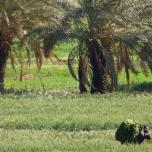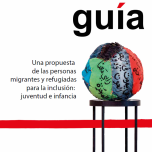Global Society Institute / Organization for Science Education and Global Society
Floating House
Punta Camorro, Sendero de La caleta Parque Natural
11380 Tarifa Cádiz
Spain
- Democracy and community development
- Environment/Sustainable development
- Gender
- Human rights
- Innovation and Entrepreneurship
- International/Cultural relations
- Media
- Research
- Youth and education
The Global Society Institute is an academic institution with the aim of promoting a global society for sustainable development.
Structure of the organization, including number of staff employed and/or partners
- Volunteer based interorganizational non-profit entity, with around 20 membersw and 8 partner organisations and around 7
Budgetary resources available in a year
- 100-500k
Sources of funding
- Donations and Grants
Modalities of action (concrete projects, exchanges, seminars, scholarships etc.)
- SDG projects in the natural and social sciences, scholarships, seminars
Main partners involved in the organization's projects/activities
- Universities of Malaga, Berlin, Stuttgart; Fraunhofer; Organization for Sciences, Education and Global Society; SDW Association Germany; United Nations
The institute brings together people and institutions who want to actively shape the future of civil society, who initiate projects in the spirit of the United Nations Global Goals, and who conduct research and education on current global society issues.
Projects are initiated in the fields of research, education, economy and culture. They contribute to one or more of the 17 Sustainable Development Goals and make a recognisable contribution to shaping a sustainable and progressive global society.
GSI can contribute to the ALF network in Spain through various competencies:
Existing network of academic and social actors in multiple countries all working in line with the SDGs in a spirit of intercultural communication. This richness of experience and capability allows GSI to lead and implement international projects in all of the key action areas of ALF.
As a foundation headquartered in Germany, we have chosen our second site in Tarifa Spain with great intention. Our physical location where two continents and two oceans meet symbolizes our objective to bring together people, with all their knowledge, capabilities, and intercultural diversity. We want to collaborate and learn from other entities with similar objectives, and network with like-minded associations in the South med area.
Our entity has the capacity to support and empower other smaller local actors working in the area in the field of intercultural dialogue. We aim to use our resources to encourage smaller actors to participate at the local level, on both shores of the Mediterrean.

